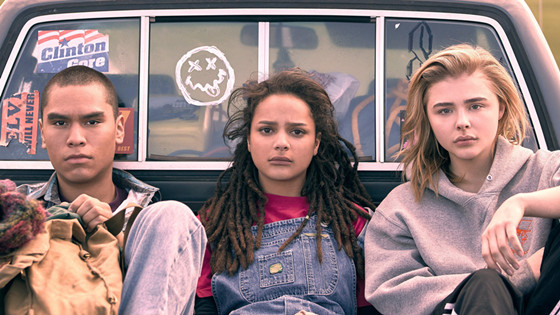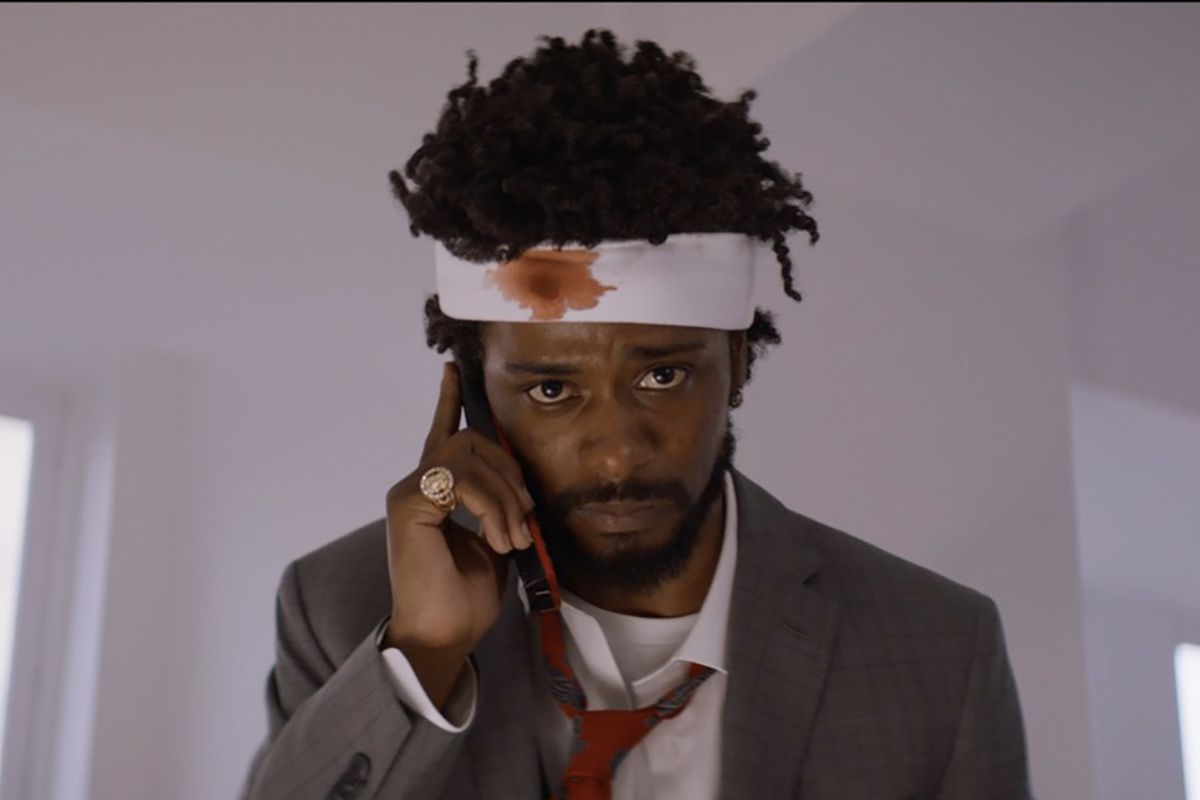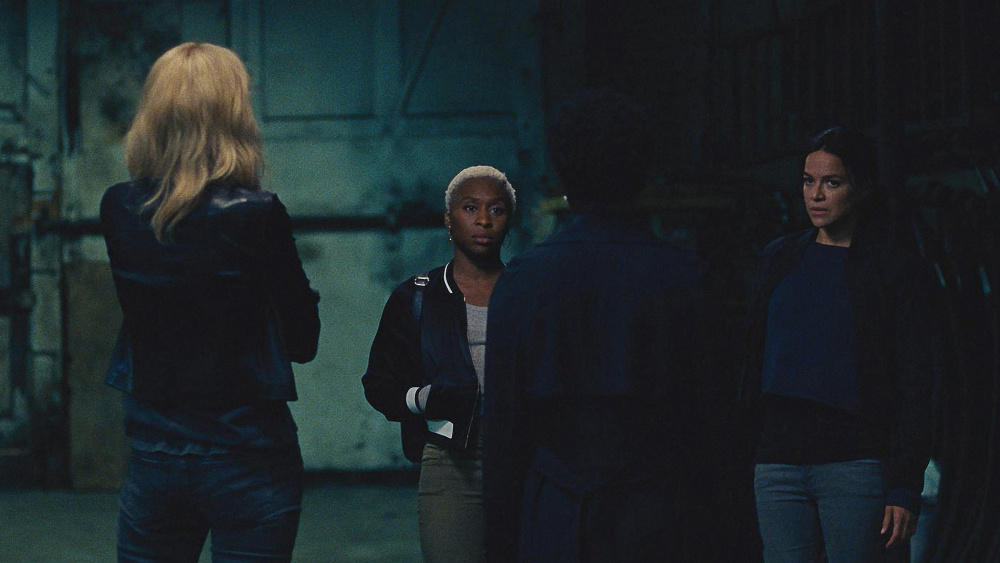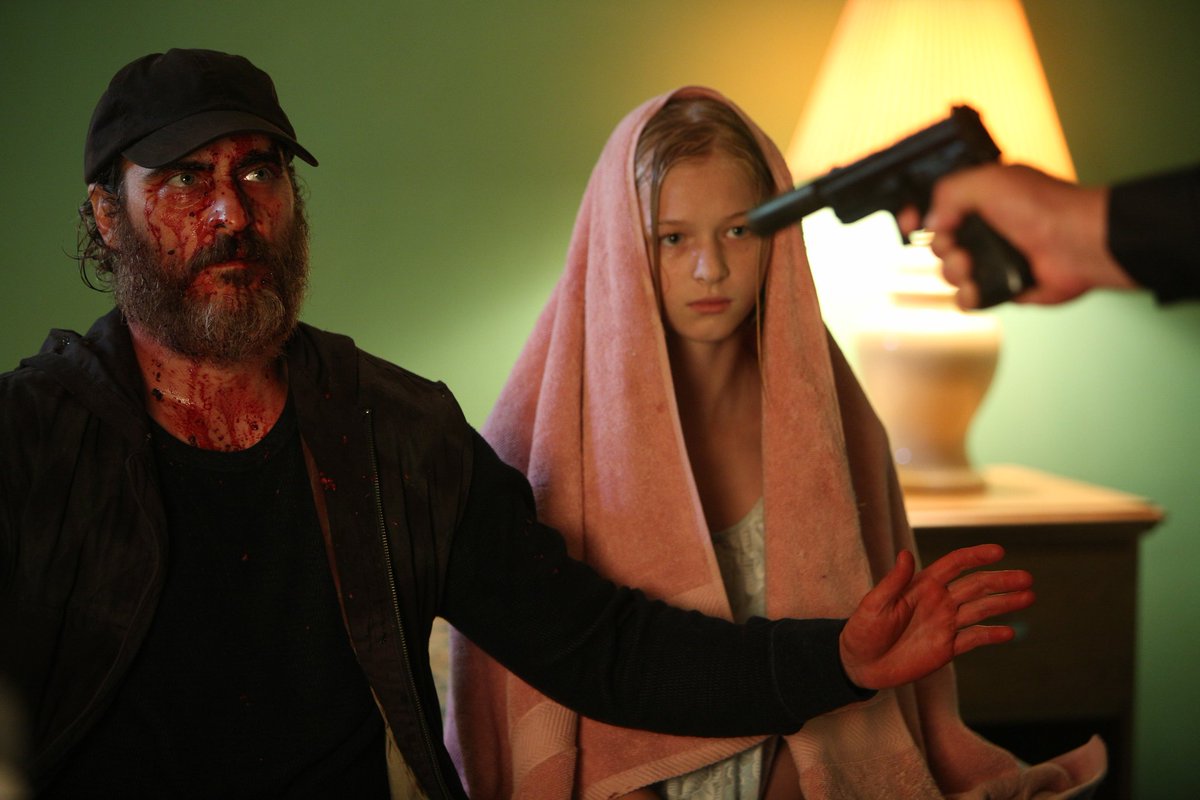6. The Miseducation of Cameron Post (6.8)

Last year we had a number of films that centered themselves in the time period of the 90’s. There was Carla Simon’s “Summer 93”, Elijah Bynum’s “Hot Summer Nights”, and Jonah Hill’s directorial debut “Mid90s”.
Writer/director Desiree Akhaven brings us into the specific year of 1993 where we follow Cam (Chloë Grace Moretz), or I should say Cameron because apparently shortening one’s name to something more male is only encouraging them to identify as the opposite sex, as she’s sent to a Christian conversion camp after her parents find out she’s a lesbian.
Cameron is trapped in a time period she’s ahead of in almost every way, what’s so lovely about her character is her innocence she has as a young girl but a stunning maturity she has beyond her years. She comes into this camp with nothing more than her identity and now it’s a psychological battle to maintain it. This battle I speak of is happening mostly in silence, using words as weapons.
Being set in 1993 has a significance in the history of the LGBTQ community, in the aftermath of the AIDS epidemic the gay community sustained a harsh and unfair hatred. It wouldn’t be until years later when much deeper and emotional stories would be told from their perspectives. Despite all of this serious talk this is by no means a hard watch, on the contrary it proves to be an intelligent and at times fun movie to watch.
As one would expect there are moments of sadness that occur but the main feeling is one that builds friendships and stays true to one’s self and never gives in to the manipulation at hand. And considering that conversion therapy is still legal in 41 states at the moment I’m writing this, Akhaven’s film is going to be around for a while.
7. Revenge (6.3)

A sexy, thrilling reimagining of the rape-revenge-fantasy. Admittedly this film does have some big stretches in logic where you’ll need to suspend your disbelief, but that’s all just part of the fantasy element. The rest is all about the rape and the revenge. When we first see Jen in the beginning she’s merely an object of sexual pleasure for big shot men who cheat on their loved ones, and she has no problem with this. She’s a tease and she knows it but nevertheless is completely comfortable with her sexuality.
Sometimes being happy with one’s self is far more powerful than fighting so hard to be independent. But when she’s taken advantage of is when the breaking point happens, now it’s a matter of exacting what she deserves. From there Jen’s transformation from an object to a badass exacting revenge on her rapists is a blood soaked, cathartic ride that never pulls punches.
The film gives a whole new meaning to the male gaze presented in cinema and simultaneously blends the deepest fears of sexual abuse in both men and women. The female aspect is obvious but the way in which Jen extracts her revenge is truly something to behold. In all of its violence and brutality “Revenge” never leaves anything out of place, each action sequence punctuates its underlying theme of sexual abuse.
With each kill Jen gets she gives these men a dose of their own medicine by hitting them with some form of penetration whether it be bullets, knifes, glass, or anything she can get her hands on. This is a film many of us didn’t know we needed but we should be happy as hell that we got.
8. Sorry to Bother You (7.0)

There were a number of films centered in Oakland, California last year. “Black Panther”, “Blindspotting”, and now “Sorry to Bother You”, all of which were excellent. And wouldn’t you know it they all likewise tackle the subjects of race, social systems, and prejudice.
This was the directional debut of Boots Riley and with it he kicks the door down as he makes his way in. It feels like everything Riley is poured out of him and onto the screen, this is the type of work that comes straight from this man’s heart.
There are many films that tackle the subjects presented in this film but very few that do it in such an upfront manner as this, never afraid to go far out there and kicking itself into high gear from the word go.
The simple way of trying to explain this is Cassius (Lakeith Stanfield) starts working for a call center and works his way up the ladder to the top floor where he becomes a big shot despite the qualms of his friends and girlfriend only to see firsthand what this business is actually accomplishing. But my god, it can’t possibly be put that simply.
The best type of comedy out there, at least what I like the most, is the type of satirical nature that summarizes a topic and provides us with a resolution to said topic. And through his insanity Riley channels something extraordinary that feels like a complete mindbender but never loses track of what it’s meant to be because it’s coming from a genuine source. Race, social classes, wealth, art, capitalism, money, big business, and just about everything under the sun isn’t safe from this films grasp and all the better for it.
9. Widows (7.2)

Steve McQueen nails it again. McQueen’s passion project, based off the British television show from the early 80’s, updates itself and gives a fresh, invigorating look at modern day Chicago. Through the elements of the crime heist story develops a character study that broadly examines the various levels of class in Chicago from the wealthy, to the poor, to the politicians, to the criminals. Many of which are more connected with one another than we realize.
The titular widows; being Veronica (Viola Davis), Linda (Michele Rodriguez), and Alice (Elizabeth Debicki), are the late wives of criminals responsible for stealing millions of dollars from politician, Jamal Manning (Brian Tyree Henry) and now owe him a debt. Whether they like it or not they must carry on their husband’s work and pay back Manning.
But really it’s about much more than just that, the actual heist thriller element of “Widows” doesn’t really come until the final act. Until then it’s a harrowing tale of poverty, politics, wealth, and one’s position in a preordained social structure.
This is one of the most fascinating ensembles in recent memory and each cast member brings their own characteristics to the story. The underlying story happening at the heart of “Widows” is the political election between Jamal Manning and Jack Mulligan (Collin Farrell).
The Mulligan family has had a long history of ruling the alderman of their town. Jack’s father Tom (Robert Duvall) has been a power broker for many years and has ruled a system in which the poor is poor and the rich get all the benefits.
It’s a garbage system that only serves garbage people. The good ones are left to fight to survive and struggle at every cost to sustain a good living. This kind of system spreads like a weed and branches across the board to everyone involved, There’s a moment where McQueen makes sure we hear someone say “Nothing you do is gonna change your situation.” That’s what it’s all about and the select few who fight that.
10. You Were Never Really Here (6.8)

In the beginning of “You Were Never Really Here” we see Joe (Joaquin Phoenix). He’s a big, intimidating man with little or nothing to say. He picks up objects such as a roll of duct tape and a bloody hammer.
And just like that, even with nothing said, we know everything we need to know about this man. He’s a beaten and battered veteran, haunted by memories of his service and his abusive childhood but tries to go on with living. He takes care of his elderly mother and seemingly lives a comfortable life, but inside he’s a wreck plagued with suicidal thoughts. Given his experience in the military and FBI he’s recruited for a private job to recover the daughter of a New York State senator who’s subject to molestation abuse.
Director Lynne Ramsey directs squarely from Joe’s mind, even when he’s not on seen the emptiness of his feelings are occupying the screen. This is a man troubled and haunted by his memories and never gets any sort of satisfaction. This predicament he finds himself involved with in most traditional ways would be a redemption or a catharsis.
The way many of these stories go is to use tragedy as triumph, but Ramsey refuses this. There is no redemption, catharsis, or resolution to be found because for people like Joe it’s never meant to be. They’re cursed to live with that emptiness that always lingers, the depression that stays with us, never to fulfill any desire. Through the events of the film we likewise become as saddened and distraught as Joe is, never given a feeling of revenge or redemption, and left to suffer with the pain of it.